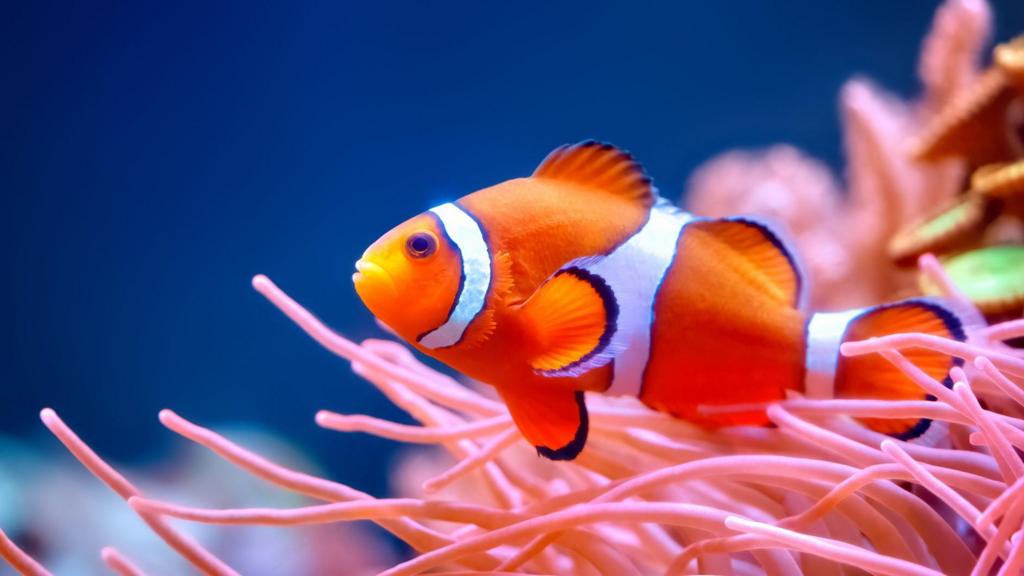A new study reveals that clownfish, similar to those in the popular film *Finding Nemo*, are shrinking in response to marine heatwaves.
Research documented a significant decrease in the size of clownfish inhabiting coral reefs during the intense ocean temperature spikes of 2023.
Scientists express surprise at this finding, suggesting it may offer insight into the observed size reduction in other marine species globally.
Mounting evidence indicates that various animals, including birds, lizards, and insects, are undergoing morphological changes to adapt to climate change.
“Clownfish can shrink, and they do so to survive these heat stress events,” explains Dr. Theresa Rueger, senior lecturer in Tropical Marine Sciences at Newcastle University.
The research team studied clownfish pairs residing in reefs off Kimbe Bay, Papua New Guinea, a renowned marine biodiversity hotspot.
These wild clownfish closely resemble their cinematic counterparts in *Finding Nemo*, prompting a reflection on the film’s narrative in light of this discovery.
The study, conducted during the summer of 2023, coincided with a period of extreme ocean warming, resulting in widespread coral bleaching.
Scientists meticulously measured individual clownfish to assess their response to the heatwave.
Results showed that the fish experienced not only weight loss but also a reduction in body length of several millimeters. Remarkably, 75% of the fish exhibited this shrinkage at least once during the heatwave.
Dr. Rueger clarifies: “It’s not simply weight loss; they actively alter their size, becoming smaller individuals with reduced food requirements and improved oxygen efficiency.”
The fish may be resorbing fat and bone tissue, a phenomenon observed in other animals like marine iguanas, though further laboratory research is needed for confirmation.
Dr. Rueger humorously suggests a potential sequel for *Finding Nemo*, incorporating the challenges of environmental change.
“The movie told a great story, but the next chapter must explore how Nemo copes with ongoing environmental change,” she commented to BBC News.
Global warming presents a significant challenge for warm-blooded animals, demanding constant body temperature regulation to prevent overheating.
Animals adapt in various ways: migrating to cooler habitats, altering life cycle timing, or adjusting their body size, as seen in this study.
This research is published in the journal, Science Advances.
Follow Helen on X and on Bluesky.
The York-born actress helped fund the purchase of Townend Field by the Upper Ouse Conservation Trust.
The data collected on the GB Row Challenge has been analysed by the University of Portsmouth.
The UK’s saltmarshes lock away climate-warming greenhouse gases in layers of mud, a new report from WWF says.
RRS James Cook embarks to study the Porcupine Abyssal Plain, monitoring life at depths of 5,000m.
North Kent Woods and Downs is the eighth new nature reserve to commemorate King Charles’ coronation.

